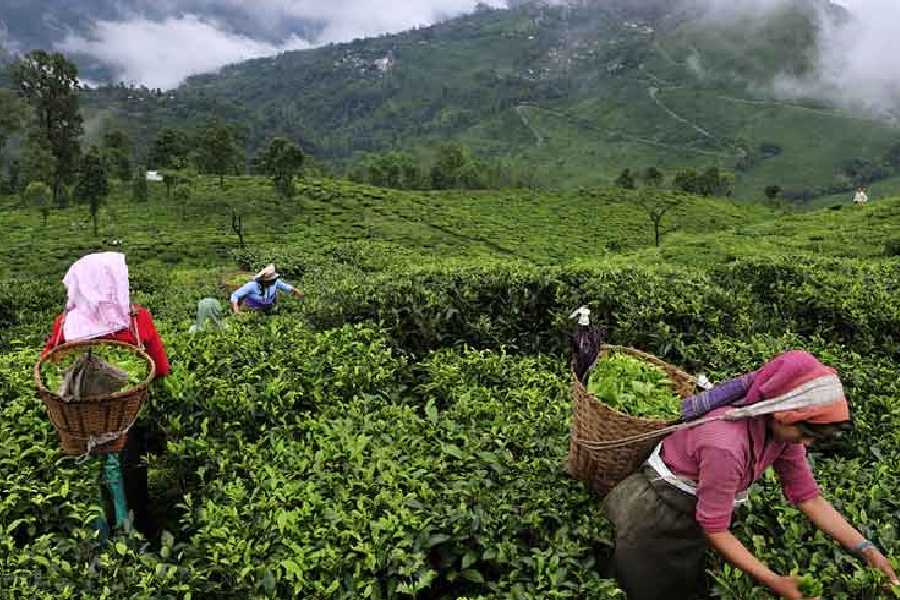The intense monsoonal downpour in sub-Himalayan Bengal last week has posed fresh problems for the tea industry of the region, stakeholders have said.
A number of gardens in the Dooars, especially in Alipurduar district, have faced losses as acres of plantations have been swept away in flash floods.
In the small tea sector, growers said they were being forced to make distress sales because bought-leaf factories were paying rates far below the cost of production.
Prabir Bhattacharjee, the secretary-general of the Tea Association of India (TAI), said tea estates in Alipurduar had borne the brunt of incessant rainfall from July 10 to 15. The records of rainfall maintained in tea gardens show it rained around 595mm during these days. The total cumulative rainfall till July 15 (since the start of 2023) is around 2,052mm, he said.
Sources in the TAI said around 65 hectares of plantations in the Mechpara tea estate had been damaged by flash floods. There was similar damage in Dalgaon (10 hectares) and Nangdala (five hectares).
Such plantation damage means a cumulative loss of around 60,000 kilos of made tea, said sources.
“As these gardens are located downstream of the rivers that descend from Bhutan, it is time to initiate a composite dialogue with the Bhutan government to find some way out. Or else, tea gardens in Alipurdaur will gradually wither from the twin onslaughts of floods and gradual raising of the riverbed,” said Bhattacharjee.
In the small tea sector, the growers are aggrieved by the low price realisations. Bijoygopal Chakraborty, president of the Confederation of Indian Small Tea Growers’ Associations (Cista), said that over the past fortnight, the growers were getting Rs 12 to 13 only for a kilo of green tea leaves from bought-leaf factories (BLFs).
The cost of production per kilo is Rs 18.52.











